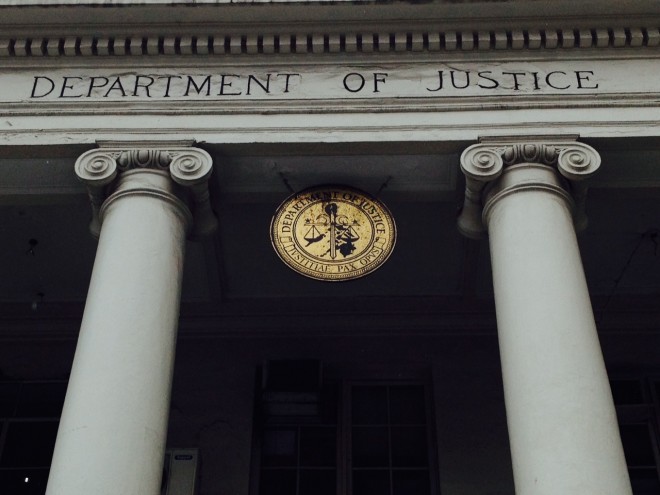DOJ head dares transparency group: Prove claim on case meddling
Acting Justice Secretary Emmanuel Caparas on Thursday challenged the anticorruption group Filipino Alliance for Transparency and Empowerment (FATE) to substantiate its allegation that he has been meddling in pending cases to favor certain individuals.
“Any insinuation that we are doing our work in a manner that is not proper, these are very unfair accusations which are not true,” Caparas said at a press conference.
READ: Meddling in DOJ cases? Chief finds allegation ‘amusing’
“If you want to put any mean or substance on that [allegation], please put that on the table and face me,” he added.
Caparas also welcomed the statement of incoming Justice Secretary Vitaliano Aguirre II that he would order an investigation.
Article continues after this advertisement“The incoming Secretary is free to do what he thinks is necessary,” Caparas said.
Article continues after this advertisementFATE, at a press conference, accused Caparas of rewriting and reversing resolutions to favor certain parties in exchange for money.
FATE’s Jo Perez said Caparas even asked prosecutors handing particular cases to go on forced leave.
Perez said their information came from their research team. The group has not identified any specific case which allegedly is among the so-called “midnight resolutions.”
“All that we have done here when I assumed the position as Secretary of Justice is really what the work entails—that’s it, nothing more, nothing less. How we should do it? The best way we know how. The whole idea here during my entire stay as SOJ (Secretary of Justice) has been nothing but public service and professionalism,” Caparas said.
The outgoing justice chief said he would continue issuing resolutions and resolving cases because “I still have a job to do. Our term ends June 30.”
The Department of Justice (DOJ) has thousands of cases in its backlog. Caparas said the department could not ease the backlog unless it acted on the cases, especially if there were already resolutions.
In disposing of cases, he said it was on a first-come, first-served basis.
“Whatever is presented to me, whatever needs my signature, whatever is on my desk for signature will be the first to be subjected to review,” Caparas said.
“This is never just a question of a case that is put in front of me and I sign. It is always a question of research being done, drafts being prepared, discussions being undertaken and then they are resolved—that is the professional way of doing it, the proper way of doing it,” he said.
Caparas reminded the group that while it was free to make the allegations against him, “please be responsible because if you do not know how to be responsible about it, might as well shut up.” RAM/rga
